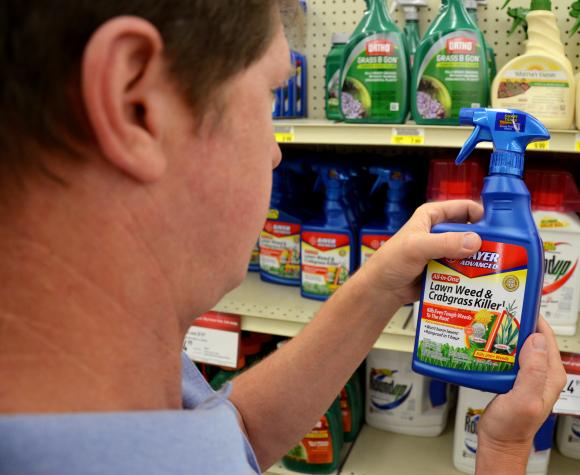

A problem with patches
Discover how improper fertilizing and watering can worsen lawn diseases like brown patch and large patch, and learn effective prevention strategies.
Top 10 horticulture tips from veteran MU Extension agronomist
BLUE SPRINGS, Mo. – During her 23 years as a University of Missouri Extension agronomy specialist, Pat Miller has answered a lot of questions and looked at a lot of plants. Here are her top 10 horticulture tips.
High-grading brings down health, value of woodland
High-grading timber harms woodland health and value, leaving weaker trees and reducing long-term forest productivity.
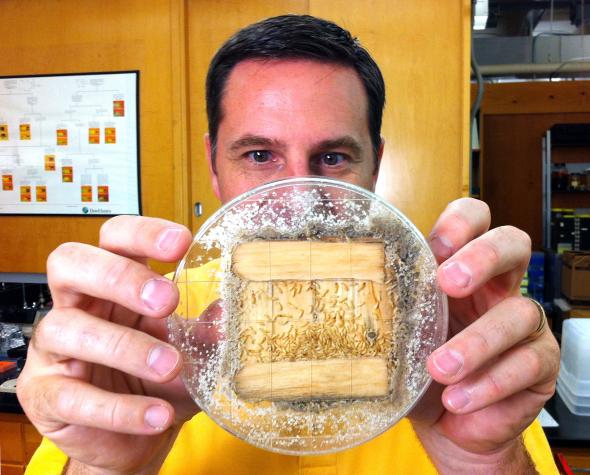
A gnawing problem
COLUMBIA, Mo. – The mouth of a termite might be small, but an infestation can take a big bite out of a home if left undetected.
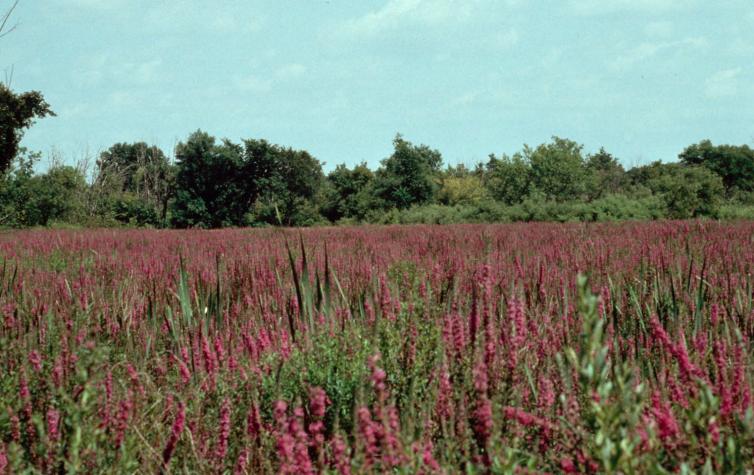
Does that plant ‘fill in quickly’ or is it invasive?
Learn how to spot plants that may be invasive, understand labels like “fills in quickly,” and choose species wisely for your garden.
Be informed before using soybeans for livestock forage
SEDALIA, Mo.—Many Missouri producers are asking if it is safe to use soybeans for livestock forage. The topic was brought up repeatedly by attendees at the Missouri State Fair in Sedalia.Tim J. Evans, toxicology specialist at the University of Missouri College of Veterinary Medicine, answered inquiries on the subject by researching the chemical mechanism of action of a commonly used herbicide, Cobra.
Give your fields a checkup for increased yields
Learn how simple diagnostic tools and soil management practices can improve crop health, increase yields, and optimize harvest decisions.
Grazing wheat in Missouri
BLUE SPRINGS, Mo. — Recent rains have given producers hope that they will be able to plant wheat this fall. Producers may be looking to plant wheat not only for a grain crop but also to provide some fall and early spring grazing, says a University of Missouri Extension agronomy specialist.
Don't let April snow showers dull May flowers
COLUMBIA, Mo. – April’s cold start in Missouri reminds gardeners that planting date is a matter of risk versus reward, said University of Missouri Extension horticulturist David Trinklein. “Growers who plant early risk crop damage or loss to freezing temperatures,” he said. “However, if the latter does not occur, they are rewarded by earlier produce, which commands more competitive prices at the market.”
Mercury Communications, Inc.
The challenge Mercury Communications, Inc., a cellular tower manufacturer in Fenton, Mo., has been receiving assistance from the Mid-America Trade Adjustment Assistance Center (TAAC) since June 2013 to improve training, marketing and advertising.
PWI, Inc.
Aviation-lighting firm expands markets, upgrades to ISO 13485, and grows sales with trade assistance support.
Major Custom Cable Inc.
Learn how Major Custom Cable used trade-adjustment funding to upgrade its systems, improve quality, and add over $1M in revenue.
Teach kids about mowing the lawn safely
COLUMBIA, Mo. – Lawn mowing is often one of the first jobs young people have. It is also one of the most dangerous spring activities, says University of Missouri Extension health and safety specialist Karen Funkenbusch.
McCormick Armstrong Co. Inc.
The challenge McCormick Armstrong Co. Inc., a Kansas manufacturer, offers a world of printing solutions from domestic commercial sheet-fed and web printing, digital printing, bindery, mailing and fulfillment to a vast array of international production solutions.
Express Scale Parts, Inc.
Learn how Express Scale Parts secured $75,000 in federal trade‐assistance funds, matched for $150,000, to upgrade operations and boost sales.
KC Tent & Awning Company
A Kansas City awning maker doubled revenue, expanded staff, and improved processes with trade-assistance support.
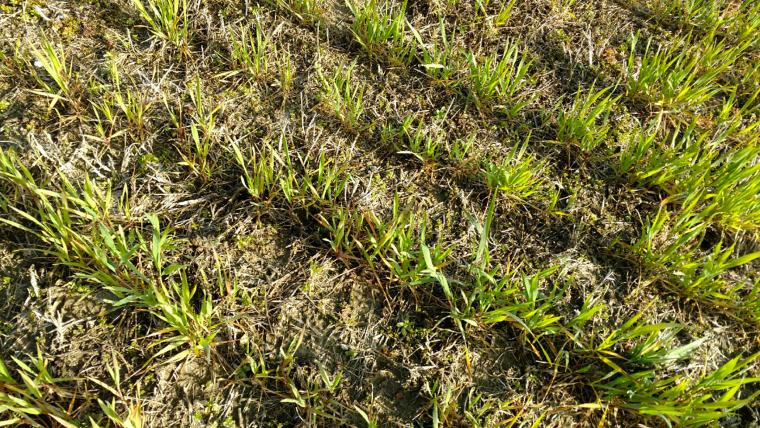
Cold start to April delays crops
Unseasonably cold April weather in Missouri has delayed corn planting, stressed wheat fields, and strained pasture and hay supplies for farmers.
Grazing school set for May 9-10 in Osceola
STOCKTON, Mo. – St. Clair County Soil and Water Conservation District, USDA Natural Resources Conservation Service, University of Missouri Extension, and Missouri Forage and Grassland Council will hold a school on management-intensive grazing May 9-10 in Osceola.“This school should help livestock producers cut costs in their operation through better livestock, grazing and pasture management,” said MU Extension livestock specialist…
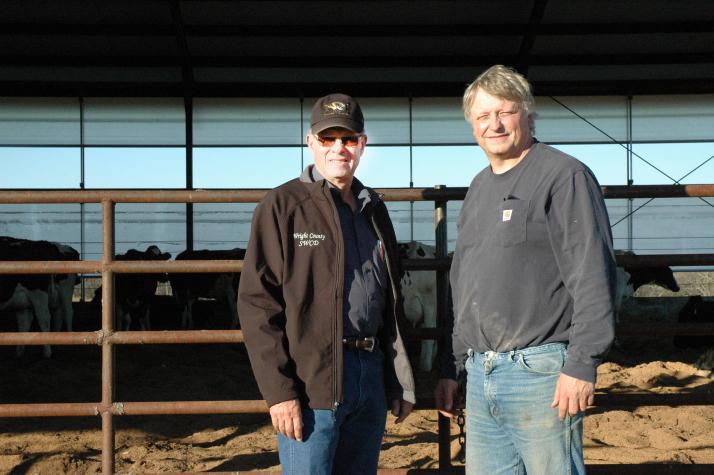
SW Mo. dairy and creamery sees positive changes with pack barns
Southwest Missouri dairy and creamery see lower somatic cell counts, higher milk yield, and better cow comfort using compost-bedded pack barns.
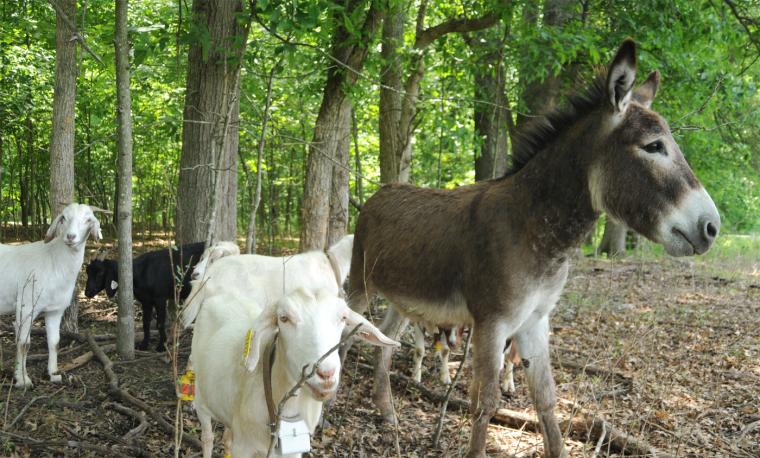
A bray keeps predators away
JEFFERSON CITY, Mo. – There’s a new guard dog in town. And it’s more likely to bray than bark.A growing number of sheep and goat farmers are using donkeys to keep predators at bay, says Charlotte Clifford-Rathert, small-ruminant specialist at Lincoln University Cooperative Extension in Jefferson City.Clifford-Rathert is studying the effectiveness of donkeys in guarding goat and sheep herds from coyotes, bobcats, dogs and other…

Renoe takes on engagement role as new MU assistant vice chancellor
COLUMBIA, Mo. – Susan Renoe has been appointed assistant vice chancellor for research, extension and engagement at the University of Missouri.This new position represents an expanded role for Renoe, who will continue to provide oversight for the MU Connector, a joint unit between the MU Office of Research and MU Extension and Engagement.
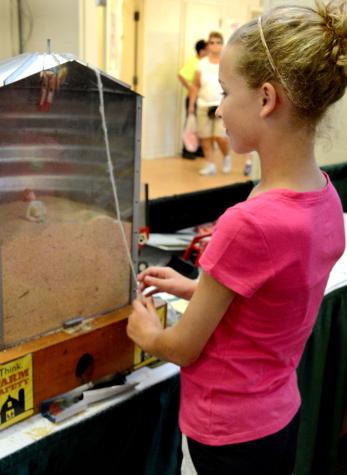
Grain bin safety promoted April 9-13
Learn key tips to prevent grain bin accidents and protect farmworkers during April 9–13 safety awareness week.
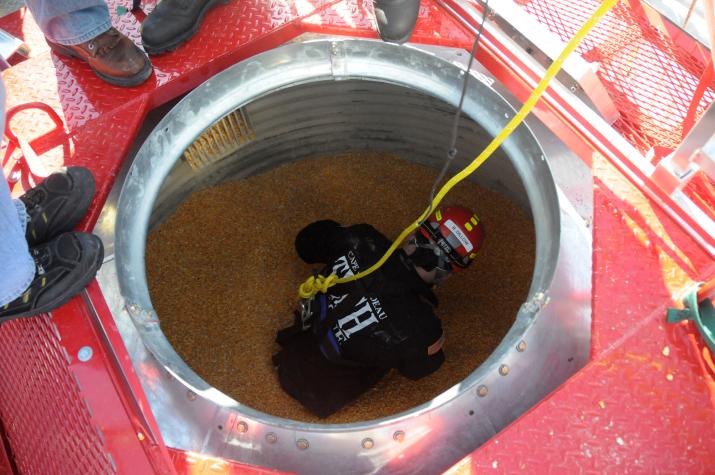
Against the grain
COLUMBIA, Mo.– If you don’t work on a farm, a bin full of grain may not look dangerous. But farmworkers who go inside grain bins can quickly find themselves literally in over their heads. The results can be deadly: Over the last 50 years, hundreds in the U.S. have died from entrapment in grain, including more than two dozen in 2010, the most lethal year on record for grain bin accidents.
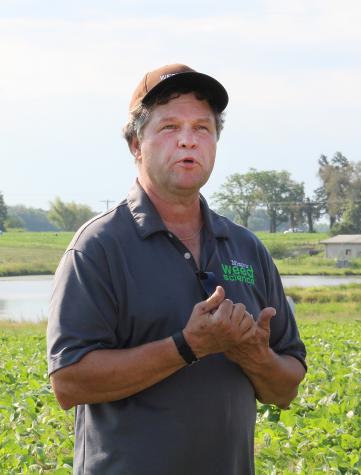
MU plant scientist to speak on Callery pear at April 13 event in Columbia
Attend a free April 13 event in Columbia to learn how to identify and manage invasive Callery pear trees.
Planning, patience lead to better forage and cattle
STOCKTON, Mo. – Patience pays off for cattle producers who wait for fescue to grow some before turning cattle out for spring grazing, says University of Missouri Extension livestock specialist Patrick Davis.“After a long winter of feeding hay, producers are anxious to turn cattle into the fescue pasture,” Davis says. “However, it is better to wait until fescue grows to heights of 3 to 8 inches before letting cattle onto fescue pastures…
